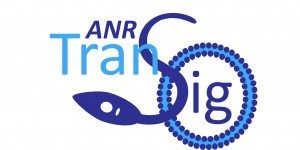About
Intracellular parasitism is a major hallmark of the most successful and deadly human pathogens. This microbial survival strategy is especially devastating if immune cells are exploited as hosts. Here we propose to use the protozoan parasite Leishmania (L.) donovani as model system to investigate the impact of pathogen-derived signalling molecules on parasite viability, virulence, and host cell expression profile. L. donovani is the causative agent of visceral leishmaniasis that represents a major public health problem worldwide and has been declared as the most significant emerging parasitic disease in Europe due to global warming. Despite the relevance of intracellular Leishmania infection in global mortality and morbidity, surprisingly little is known on how these microbes reprogram their host cell to establish permissive conditions for survival.
The TranSig consortium is focused on secreted Leishmania signalling proteins that may act in “trans” to modulate the host cell phenotype. Our project emerges from a series of previously published observations showing (i) inactivation of macrophage immune signalling and anti-microbial activities by intracellular Leishmania, (ii) release of the parasite casein kinase homolog CK1.2 and the chaperone HSP90 into the host cell cytoplasm, and (iii) direct interaction of CK1.2 with host immune proteins. We hypothesize that CK1.2 is released through exosomes into the host cell cytoplasm in a HSP90-dependent manner, where it modulates signalling by phosphorylation of host proteins in order to establish permissive conditions for intracellular parasite survival. TranSig investigates this innovative working hypothesis through three complementary and multi-disciplinary tasks by applying genetic and microscopic approaches to gain insight into the function and localization of the Leishmania ecto-kinase CK1.2 (Task 1), by using a chemical-genetics approach to functionally analyse the role of HSP90 phoshorylation on chaperone function and localization (Task 2), and by investigating the regulatory relationship between CK1.2 and HSP90 and their interaction partners, and the impact of both kinase and chaperone activities on the host cell phenotype by transcript profiling using RNAseq technology (Task 3). Our ultimate goal is to translate our research findings into novel potent anti-leishmanial therapies by interfering with parasite protein release thus restoring the host cell anti-microbial potential.
The TranSig consortium mobilizes and synergizes two world-renowned centers in infectious diseases and parasitology, the Institut Pasteur in France (Partner 1) and the Bernhard Nocht Institute for Tropical Medicine in Germany (Partner 2). Significantly, both partners have a common interest in Leishmania stress signaling, with the German partner being an expert in parasite heat shock protein and chaperone biology, and the French partner providing expertise in parasite kinase biology and stress-induced protein phosphorylation. This complementary interest and expertise in parasite stress response is documented through a recent joint high-impact publication in PNAS. TranSig thus provides a unique opportunity to (for the first time) financially support this validated collaboration and to establish a powerful platform driving scientific excellence across European borders. TranSig will deliver considerable progress beyond the state-of-the-art with respect to (i) our very limited knowledge in the fields of parasite protein kinase and heat shock protein biology, and Leishmania-host cell interaction, with relevance to other intracellular parasites, such as Trypanosoma cruzi and Plasmodium falciparum, and (ii) the identification of novel drug targets that directly feed into the drug development pipeline established by Partner 1 through the LeishDrug and TransLeish consortia.





